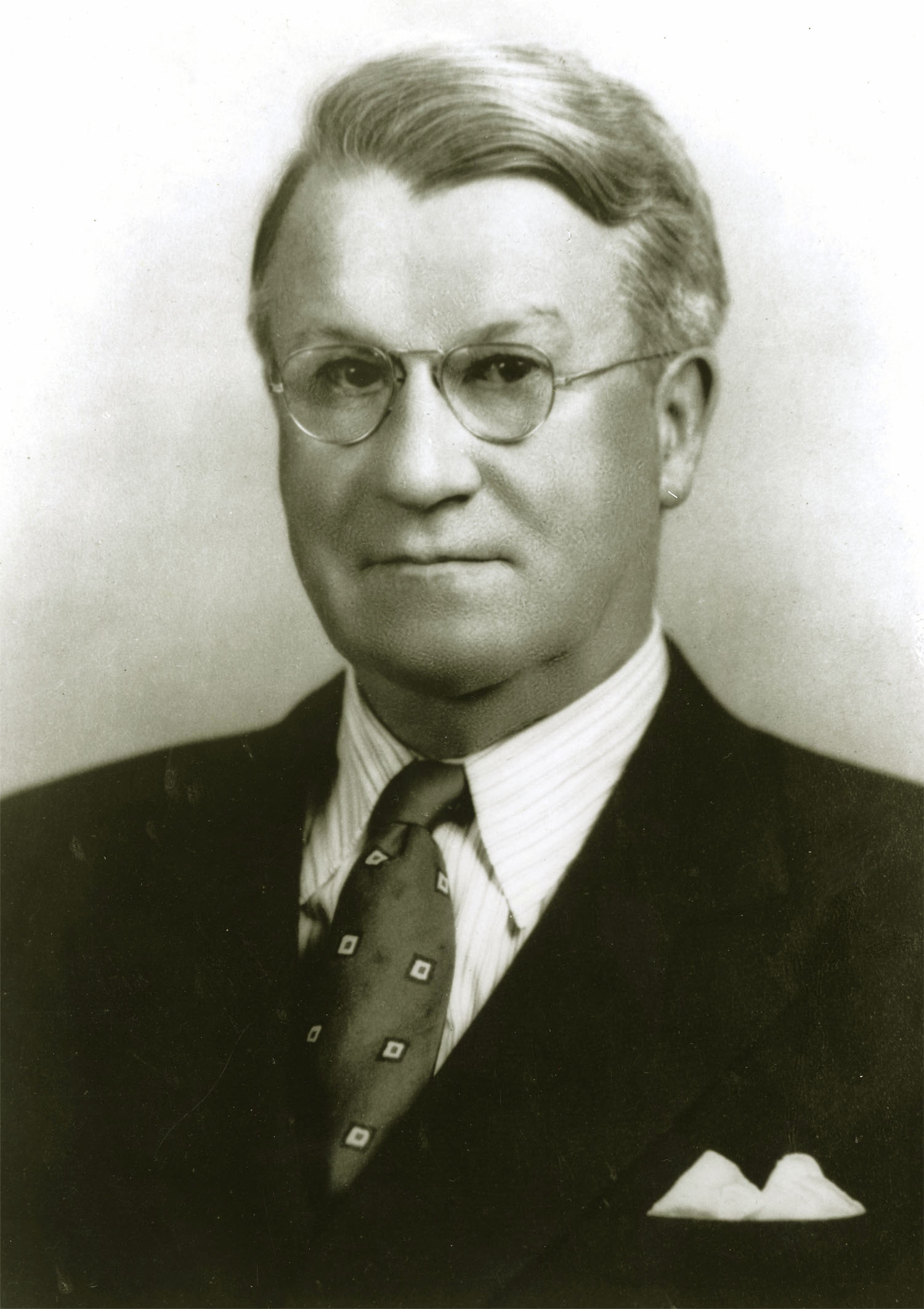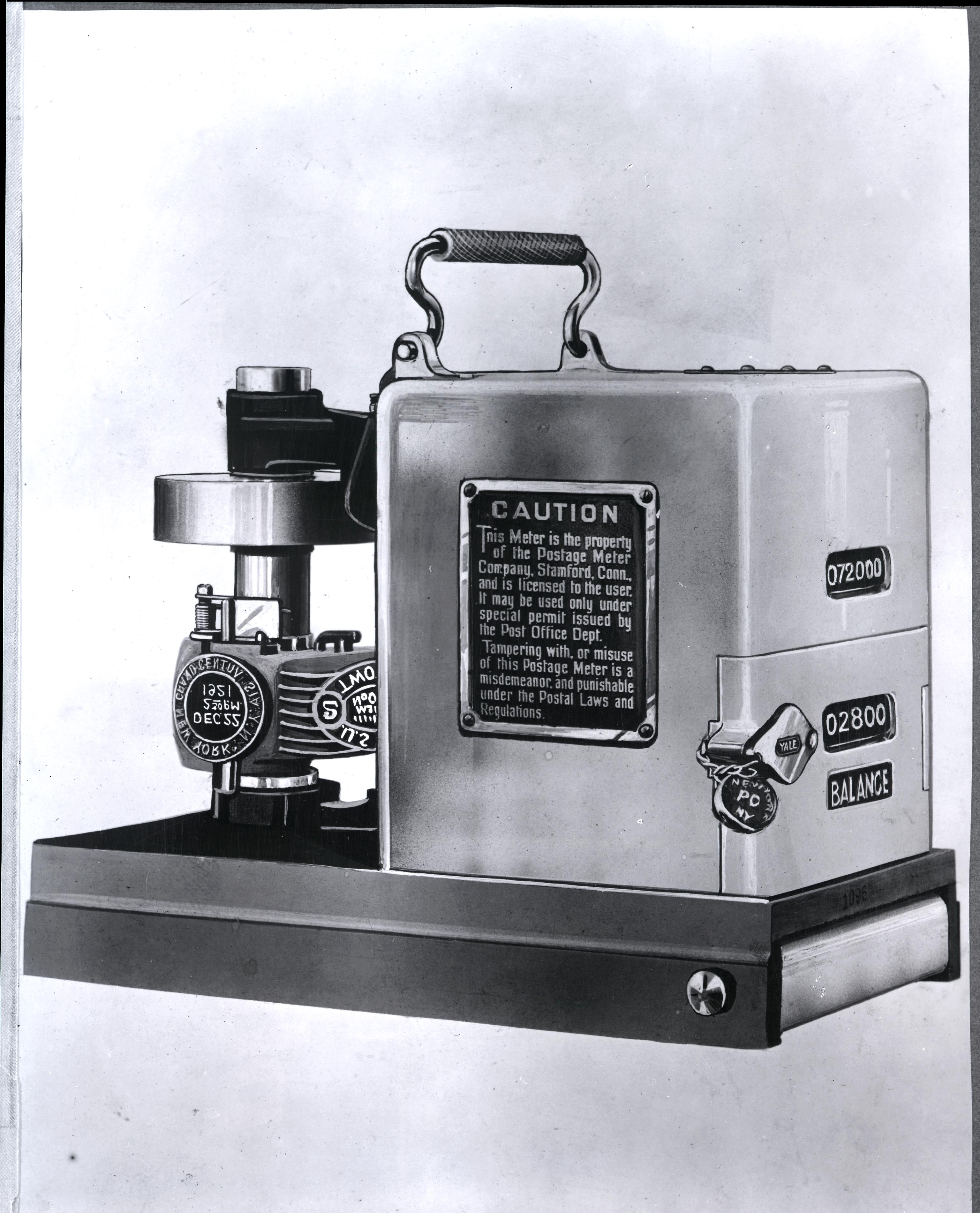
Country of origin: England
Year came to U.S.: circa 1905
Business: Pitney Bowes (1920)
Headquarters: Stamford, CT
2023 revenue: $3.3 billion
Worldwide employment: 11,000

Bowes made up for his lack of formal education with savvy salesmanship.
He championed diversity in the workplace, good corporate citizenship and employee benefits.

The First Postage Meter
Biography
Walter H. Bowes lacked formal education, but he was a natural-born salesman. As an entrepreneur, he also had a keen sense of future needs.
Coming to the Northeast United States from England as an ambitious young fellow at the turn of the century, Bowes smashed sales records within a year of working at a mail-addressing machine manufacturer. In 1909, at age 27, he bought the Universal Stamping Machine Company, which produced stamp-cancellation equipment for the U.S. Postal Service.
But Bowes questioned the longevity of such equipment in an age of mechanization. Thus, he set out to make his own stamp-cancellation machine obsolete with an idea of printing stamp facsimiles on letters and using a counter to verify usage.
Enter Arthur Pitney, an inventor who had patented such a gadget. In 1919, the pair met in Stamford, Connecticut. Since sales was not Pitney’s strong point, they formed the Pitney Bowes Postage Meter Company.
The first piece of metered mail, a letter from Bowes to his wife, was posted December 10, 1920. Within 24 months, there were Pitney Bowes branch offices in a dozen cities and 404 meters were in use.
Following Bowes’ forward-thinking style, Pitney Bowes continuously reworked its models and introduced mail-sorting machinery, copiers and fax machines that can be found today in offices the world over.
Through Bowes’ visionary leadership, Pitney Bowes also adopted an employee stock purchase plan in 1930 and introduced a scholarship plan for children of employees in 1953. More than 1.5 million clients in more than 200 countries around the world rely on products and services from Pitney Bowes, including 90 percent of the Fortune 500.
Updated September 2024
